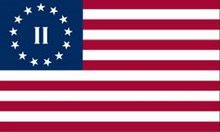The following verse in the Holy Bible, is largely misunderstood by pacifist Christians, and they use the scripture to teach others not to fight back nor to defend themselves.
Matthew 5:39, “But I tell you, do not resist an evil person. If anyone slaps you on the right cheek, turn to them the other cheek also” [New International Version, ©2010]. Many will be more familiar with the wording of the King James Version: “But I say unto you, That ye resist not evil: but whosoever shall smite thee on thy right cheek, turn to him the other also” [Matthew 5:39, King James Version].To understand this verse, we must approach it based on an understanding of the context in which this verse is included, and of the customs of the culture and era. To begin with, this was even misunderstood in Jesus’ day as he states in the Sermon on the Mount. To understand, we begin with verse 38 of the chapter:
“You have heard that it was said, ‘Eye for eye, and tooth for tooth.’But I tell you, do not resist an evil person. If anyone slaps you on the right cheek, turn to them the other cheek also” [Matthew 5:38-39 NIV].
Jesus is telling them what they had heard was in error concerning both ‘eye for an eye’ and ‘turn the other cheek.’ This is also recorded in the Book of Luke:
“But I tell you who hear me: Love your enemies, do good to those who hate you, bless those who curse you, pray for those who mistreat you. If someone strikes you on one cheek, turn to him the other also. If someone takes your cloak, do not stop him from taking your tunic. Give to everyone who asks you, and if anyone takes what belongs to you, do not demand it back. Do to others as you would have them do to you” [Luke 6:27-31 NIV].These verses are interpreted correctly in Wikipedia:
A literal interpretation of the passages, in which the command refers specifically to a manual strike against the side of a person's face, can be supported by reference to historical and other factors.[1] At the time of Jesus, striking someone deemed to be of a lower class with the back of the hand was used to assert authority and dominance.[2] If the persecuted person "turned the other cheek," the discipliner was faced with a dilemma. The left hand was used for unclean purposes, so a back-hand strike on the opposite cheek would not be performed.[3] The other alternative would be a slap with the open hand as a challenge or to punch the person, but this was seen as a statement of equality. Thus, by turning the other cheek the persecuted was in effect demanding equality. By handing over one's cloak in addition to one's tunic, the debtor has essentially given the shirt off their back, a situation directly forbidden by Hebrew Law as stated in Deuteronomy 24: 10-13: Wikipedia Article.Rick McFarland, of Grace Church, on the Real Answers web site, gives an easily understood answer to these verses:
It is interesting to note that Matthew 5:39 specifically states that if someone slaps you on the right cheek, you are to turn the other cheek also. As today, most people then were right-handed. If a right-handed person were to slap you, you would be hit on the left cheek. This verse is speaking of getting hit with a back hand across the right cheek rather than getting hit across the left cheek with full force.Turning the other cheek tells us not to take vengeance, as we should turn aside insults and minor matters and to not start a personal war over trivia. We should pick our battles carefully and be willing to forgive.
Although getting backhanded was not as painful because it came with much less force than getting hit with the dominate hand, getting slapped backhanded was one of the biggest insults in Hebrew culture. Therefore, Jesus was really saying when someone insults us, we should not attempt to retaliate or get even, rather we should turn the other cheek. Real Answers.
This does not mean we are not to defend our lives, the lives of our families, or to allow others to run over us. Again, an answer from ‘Real Answers:’
in the Old Testament,
if an individual refused to fight for his country, he would be held guilty. In Numbers 32:23, Joshua warned those who would not fight for their country that their sin would find them out. The expressed meaning of this verse is that it is dishonorable and a sin not to fight in defense of one’s country when called upon to do so. According to the Apostle Paul’s instructions in 1Timothy 5:8, if you do not provide for your own household you are worse than an infidel (or unbeliever) and have denied the faith. When read in context, this verse speaks of taking care of your family financially. Clearly, this verse extends to include the physical care and protection of your family. It would do no good to be diligent in paying the bills yet refuse to offer defense against someone who would enter your home with the intent to kill your family. Therefore, these verses in Matthew are not teaching against self defense in life and death matters. Ibid.Coming, What the founders of the constitution intended in the Second Commandment

